Federal Reserve Sees Big (Negative) Impact On Economy From Trump’s Trade War
The latest Federal Reserve report on the economy shows Trump's trade policies are having an increasingly negative impact.
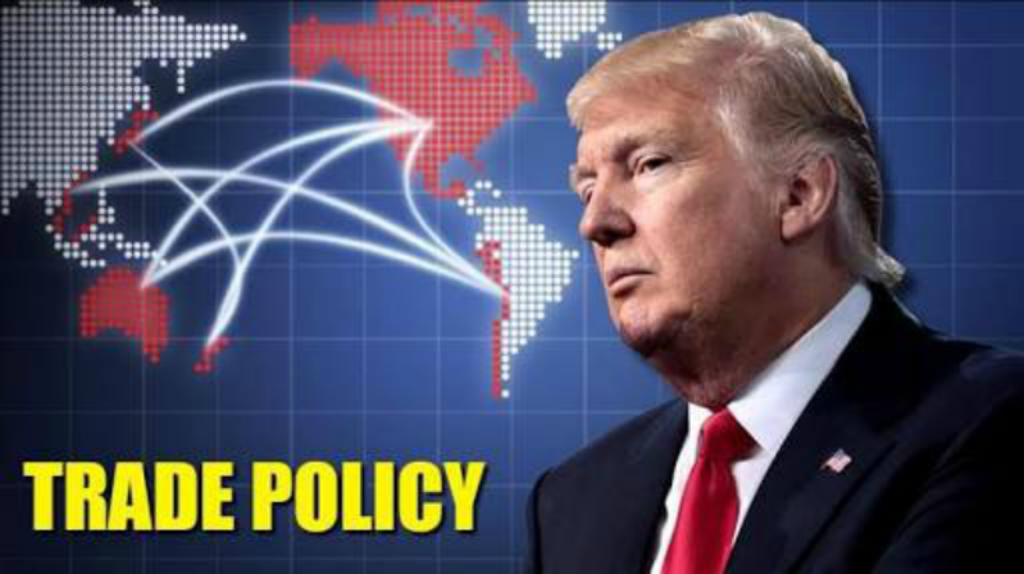
A new report by the Federal Reserve has raised concerns that President Trump’s trade war could be having a bigger impact on the economy than we’ve been able to measure so far:
WASHINGTON — Federal Reserve officials worry that the uncertainty caused by the trade war between the United States and China could be constraining business spending and may be contributing to a manufacturing slowdown that is dragging on growth.
The concerns were outlined in the Fed’s semiannual Monetary Policy Report, released on Friday as Jerome H. Powell, the chair, prepared to testify on Capitol Hill next week.
The report said that the American financial system was more resilient today than it was before the 2008 financial crisis, that economic activity had increased at a “solid pace” in the early part of this year, and that the job market was performing well. But it also noted risks on the horizon as President Trump’s trade spat with China drags on.
Manufacturing has slumped in many advanced economies and the flow of goods has slowed, but the report cautioned that identifying specific causes was difficult. In addition to the trade war, the report cited a slowing demand for technology products and one-time factors as playing a role.
In May, the United States increased its tariffs on $200 billion in Chinese goods. Although negotiations between the two countries have been revived, the administration could impose additional levies if no resolution is reached.
The latest tariffs, the Fed said, “appear to have lowered imports and exports in the United States and elsewhere, while uncertainty surrounding trade policy could be leading firms to delay investment decisions and reduce capital expenditures.”
(…)
The Fed cited potential risks to financial stability, including several from overseas that it described as moderate but that it warned could spill into the United States. Those include a potential “no deal” British exit from the European Union, fiscal challenges in Italy, high debt levels in China and a possible escalation of the trade war.
“Growth indicators from around the world have disappointed, on net, raising concerns about the strength of the global economy,” the report said. “Meanwhile, contacts in business and agriculture have reported heightened concerns over trade developments.”
T
This isn’t the first time that we’ve heard about the negative consequences of the President’s trade policies, of course, and it’s unlikely to be the last. For example, after President Trump raised tariffs on aluminum and steel last year, the price for those products, including from domestic sources unaffected by the tariffs, increased, causing problems for industries that rely on those raw materials to make their products such as the makers of automobiles and large appliances. When China retaliated by imposing tariffs on American goods their retaliation was primarily focused on the agricultural industry, something that made American pork farmers increasingly nervous about their overseas business. In Iowa, it was reported that Chinese retaliation for the tariffs cost soybean farmers $624 million this year alone, with the prospect of larger losses if the retaliation continues or if Chinese companies that buy American soybeans start entering into contracts with growers in places such as Australia and India, which compete with American farmers for the lucrative Chinese market. Additionally, we have also seen that the tariffs have had a negative impact on other American businesses, and has even led an iconic American brand like Harley-Davidson to announce that they are moving some production overseas in response to the retaliatory tariffs imposed by the European Union. Finally, there is increasing evidence that the trade war has actually opened economic doors for China because it has forced them to look in places other than the United States for things like agricultural imports. If that continues to happen, then the impact on the American economy from the President’s trade war could become more permanent than many realize.
As I’ve noted in the past, the arguments that these tariffs help either American industry or the American economy are nonsense. In the end, higher tariffs end up being paid by American consumers, by American businesses that depend on international trade such as the agriculture industry, and by the businesses that rely on the products that are subject to the tariffs. President Trump’s arguments to the contrary notwithstanding, there is no economic benefit at all to tariffs and a heck of a lot of negative. Despite that, the Trump Administration appears committed to this ill-advised, self-destructive policy.
.

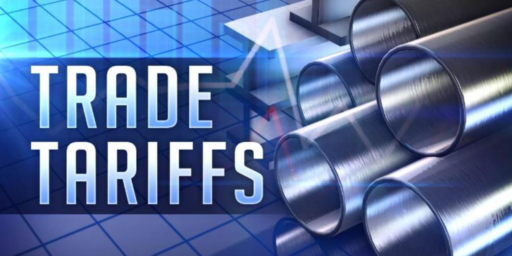
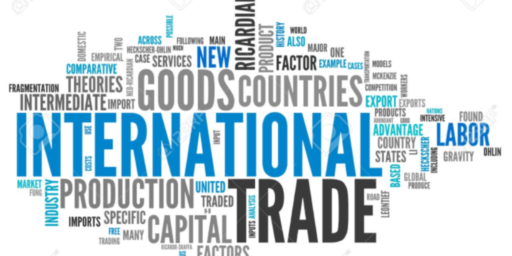
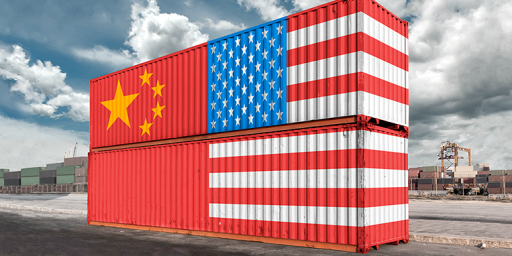
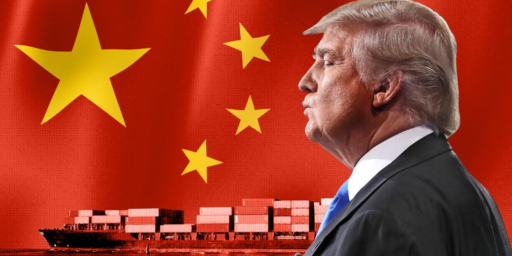

Destroy America’s credibility? Check
Ruin America’s alliances? Check
Sow division and discord? Check
Screw up America’s economy? Check
If this trash in the White House isn’t Putin’s stooge, than Putin is getting everything he wants absolutely free…
@An Interested Party: I suspect Putin is offering wonderful payoffs in the sweet by and by, and will eventually stiff Trump. Which is to say Trump is a stooge AND Putin’s getting it for free. Or for enough chump change to keep Trump on the hook.
I understand while Putin is always smiling, even though he’s a trained KGB officer. He’s f*cked the USA in oh-so-many ways, most of which I’m sure aren’t visible.
Well, that’s a big surprise.
@An Interested Party:..Sow division and discord? Check
Trump is Having a Social Media Summit and the White House Invited Right-Wing Trolls
a 2.5% fed funds rate, low unemployment, inflation target met, jobs steady, economy status quo – and the fed hints rate cuts? bizarro world – can we actually wait until recession before rate cut….I mean there ain’t much room to cut – may want to save it for actual need…
@Jc: We are going to have no tools to deal with the next recession when it hits, since Trump wants to continually stimulate the economy when it doesn’t need stimulation.